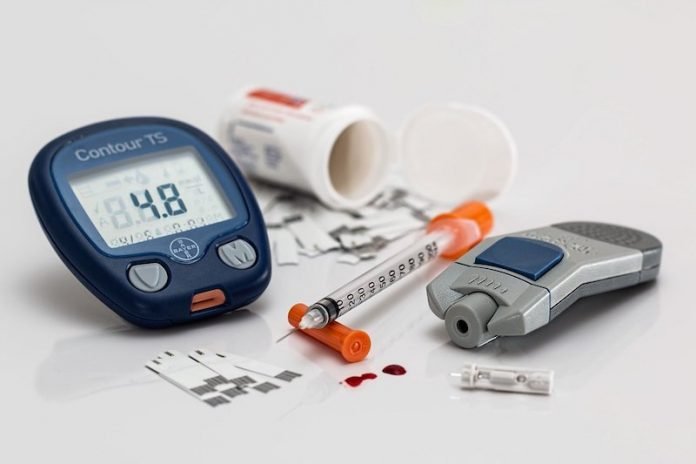
In a new study, researchers found that viruses from poo can help combat obesity and diabetes.
They found obese mice with unhealthy lifestyles gain significantly less weight and avoid type 2 diabetes when they receive viruses transplanted from the stool of lean mice.
The research was conducted by a team at the University of Copenhagen.
It is understood that obesity and type 2 diabetes are linked to imbalances in the gastrointestinal microbiome, also known as gut flora.
In recent years, it has been discovered that the composition of viruses in the gut plays a crucial role in the balance of this microbiome.
The team says If one eats poorly for long enough, they risk creating an imbalance in their intestinal tract.
Here, they have a means of recuperating balance by shooting missing virus particles back into the system.
The researchers extracted feces from mice fed a standard low-fat diet over a period of time.
The stool was then filtered so that all live bacteria were sorted out, while the virus particles—mainly bacteriophages—were concentrated.
The viruses were transplanted via a tube into the mice that had been on high-fat diets for 6 weeks. The mice continued the fatty diet for another six weeks.
Thereafter, the mice were examined after a glucose test and measured for weight gain.
The team found that when they transmitted virus particles from the feces of lean mice to obese ones, the obese mice put on much less weight compared to those that do not receive transplanted feces.
The method also seems to protect the mice against developing glucose intolerance (a hallmark of type 2 diabetes), a disease that inhibits the body from properly absorbing sugar.
The experiments demonstrated that the obese mice that received an intestinal virus transplant from lean mice reacted to a shot of glucose no differently than the lean ones.
In the obese mice on a high fat diet, that didn’t receive the virus transplant, the team observed decreased glucose tolerance, which is a precursor of diabetes.
Thus, they have influenced the gut microbiome in such a way that the mice with unhealthy lifestyles do not develop some of the common diseases triggered by poor diet.
Recent trials in mice suggest that a similar treatment, in which only the virus in the stool is transplanted, may help people suffering from obesity and type 2 diabetes.
The majority of virus particles transmitted are so-called bacteriophages—viruses that specifically attack other bacteria and not humans.
The team emphasizes that the method is not a stand-alone solution and that it must be complemented with a change in diet.
Furthermore, the treatment will probably not be targeted at general obesity, but more towards the most serious cases.
Fecal transplantation, also known as fecal microbiota transplant, is the transfer of gut bacteria from a healthy donor to a sick recipient.
The method used in this study is known as Faecal Virome Transplantation. The method filters the stool of live bacteria so that primarily virus particles are transmitted.
In recent years, fecal transplants from healthy donors to sick patients have become a popular way of treating a serious type of diarrhea caused by the bacterium Clostridioides difficile in humans.
The lead author of the study is Professor with Special Responsibilities (MSO), Dennis Sandris Nielsen of the University of Copenhagen’s Department of Food Science.
The study is published in Gut.
Copyright © 2020 Knowridge Science Report. All rights reserved.



